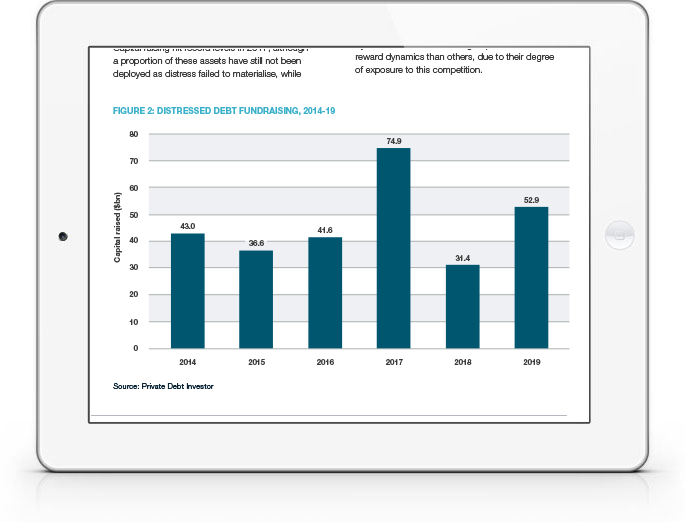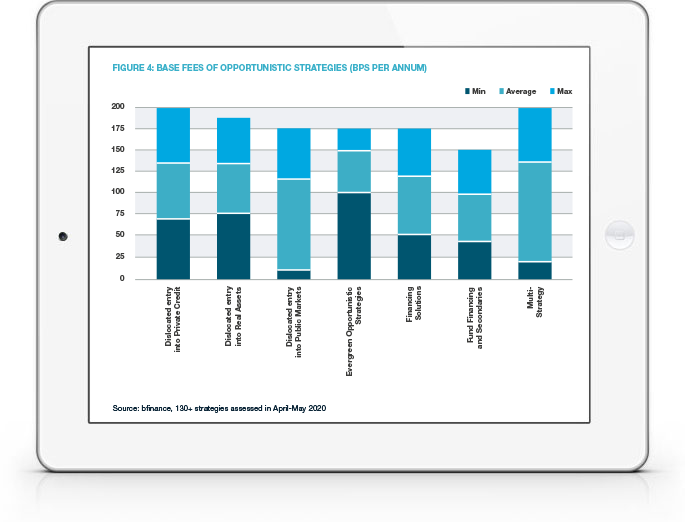
IN THIS PAPER
A new taxonomy for opportunistic and distressed strategies: based on fresh research conducted in April-May 2020, covering more than 130 launched or soon-to-be-launched funds, this paper presents a new framework of seven sub-strategies spanning the illiquid and liquid spheres.
Key data on target returns, quoted fees, lock-up periods and more: using the seven-sub-strategy framework, the paper covers vital statistics.
What should investors watch out for? Each sub-strategy comes with distinctive pitfalls and problems, as well as attractions. ESG considerations, team capabilities, and the difficulties of sourcing attractive deals in the more overheated segments are under the spotlight.

WHY DOWNLOAD?
No serious investor will have managed to avoid recent sales calls and marketing emails promoting ‘Distressed’ or ‘Opportunistic’ funds. Those on the fundraising trail proclaim that economic fallout from the current public health emergency will provide the investment opportunity of a lifetime. Some of the most credible managers are in the market now, raising dry powder to deploy as opportunities arise.
If investors have capacity available to make commitments to these opportunistic strategies, there is a strong case for doing so. Yet generating outsized returns from economic disruption is far from straightforward. The range of managers and strategies that seek to exploit the alleged opportunities is, in a word, bewildering. They span public and private markets, primary deals and secondary positions, credit and non-credit. How can investors differentiate between, categorise and choose from the different approaches available? This brief paper is designed to help investors navigate the universe and establish credible investment strategies at a crucial juncture.
Important Notices
This commentary is for institutional investors classified as Professional Clients as per FCA handbook rules COBS 3.5R. It does not constitute investment research, a financial promotion or a recommendation of any instrument, strategy or provider. The accuracy of information obtained from third parties has not been independently verified. Opinions not guarantees: the findings and opinions expressed herein are the intellectual property of bfinance and are subject to change; they are not intended to convey any guarantees as to the future performance of the investment products, asset classes, or capital markets discussed. The value of investments can go down as well as up.


 English (Global)
English (Global)  Français (France)
Français (France)  Deutsch (DACH)
Deutsch (DACH)  Italiano (Italia)
Italiano (Italia)  Dutch (Nederlands)
Dutch (Nederlands)  English (United States)
English (United States)  French (Canada)
French (Canada) 

